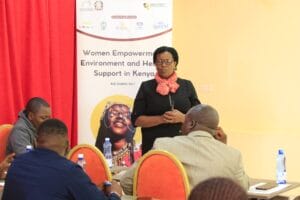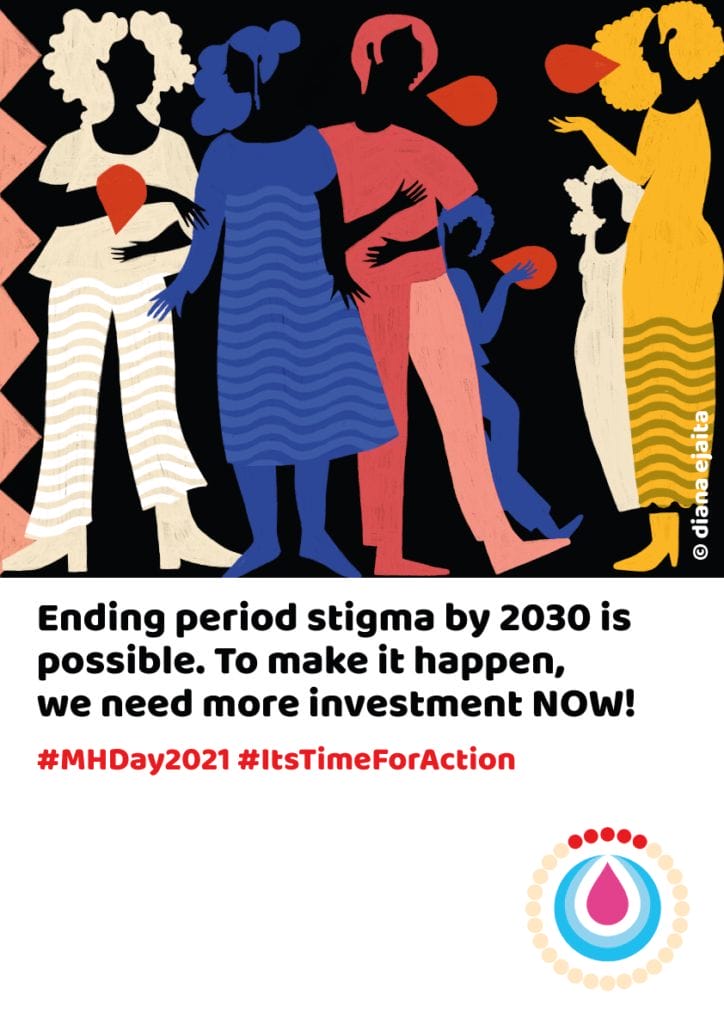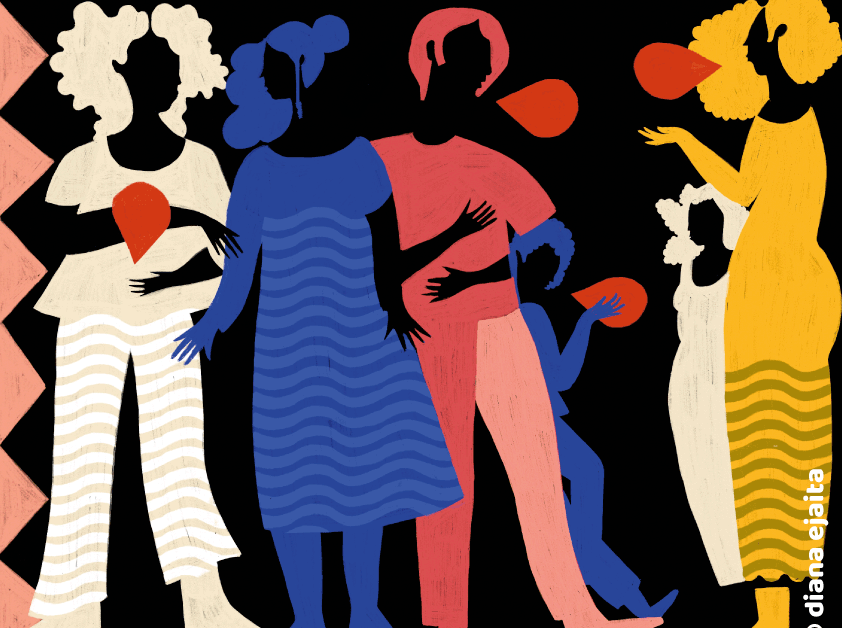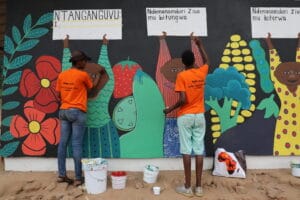
Enabling women and girls to reach their full potential
Gender equality is a long-standing priority for WeWorld policy.
WeWorld is working in 27 countries with a gender mainstreaming and interesectionality approach, focusing on the promotion of the rights of all women and girls. therefore we are also working to ensure that women and girls are not limited by something as natural as their periods.
Menstrual Hygiene Management MHM enables women and girls to reach their full potential: in many societies around the world, taboos associated with menstruation, combined with an overall culture of silence around the topic, limit the ability of women and girls to participate in society fully and equally, undermining their overall social status and self-esteem. In many countries adolescent girls may face stigma, harassment, and social exclusion during menstruation, restricting their mobility, freedom and choices and affecting attendance and participation in school and community life; compromising their safety; and causing stress and anxiety. The challenges are particularly acute for girls and women in humanitarian crises[1].

1 in 3 people across the world do not have a decent toilet of their own. But it is not just a question of lacking a household toilet – low availability of public and community toilets is also an issue. Where they do exist, these facilities often do not meet the needs of women and girls, undermining women's human rights and dignity. That is why we try to promote the construction of female -friendly public-community toilets together with awareness gender sensitivity in community planning on sanitation, especially working in WASH in School. Many schools do not support adolescent girls or female teachers in managing menstrual hygiene with dignity. Inadequate water and sanitation facilities, lack of awareness and lack of access to appropriate sanitary protection products make managing menstruation very difficult. As a result, girls often stay home from school during their periods because they are unable to safely or hygienically manage their menstruation there, missing out on 10 - 20% of their class time[2] and in some cases the total drop-out.
That’s why We World is promoting Wash in School with a focus on gender, as the benefits of good menstrual hygiene in school (available sanitary protection materials; clean and safe toilets, bathing or changing facilities with locks on the inside of doors; discrete disposal facilities; understanding and supportive staff; information on menstrual hygiene) will lead to a greater participation, self-confidence and eventually will have a positive impact on school attendance by both girl learners and female teachers.
These area some of the activities that WeWorld is carrying out rearding Menstrual Hygiene Management:
- Training and capacity building for teachers and education staff
- Awareness activities (also regarding waste disposal and management) at schools and in communities
- Integration of menstrual hygiene sessions within formal or non-formal curriculum
- Dignity kits distribution (kits should be design taking into consideration local culture, habits, availability of items and WASH cluster guidelines) for women and girls

Menstrual Hygiene Day is an annual awareness day on May 28 to help break the silence and build awareness about the fundamental role that good menstrual hygiene management (MHM) plays in enabling women and girls to reach their full potential.
Every May 28, civil society organizations and actors, government agencies, the private sector, the media, and individuals come together to celebrate the Menstrual Hygiene Day MHDay | Global (menstrualhygieneday.org) and advocate for the importance of good menstrual hygiene management (MHM). Over 800 million women and girls menstruate every day, yet across the globe they face barriers to properly managing their periods. The COVID-19 pandemic has only exacerbated these barriers and false information ( Nine things you need to know about periods and the pandemic | UNFPA - United Nations Population Fund), and We World is contributing to eradicate them.
The theme of this year’s Menstrual Hygiene Day is “Action and Investment in Menstrual Hygiene and Health.” The day is observed on 28 May because menstrual cycles average 28 days in length and people menstruate an average of five days each month. (May is the fifth month of the year.)
We support Menstrual Hygiene Day and the sexual and reproductive rights for all. “To menstruate without being cast out or missing out, without feeling fear or shame and without being treated like less or exposed to more vulnerabilities shouldn’t be controversial. Living with dignity is a human right that should be preserved. Period.”[3]
[1] Sommer M., Caruso B.A., Sahin M., Calderon T., Cavill S., Mahon T., et al. (2016) ‘A Time for Global Action: Addressing Girls’ Menstrual Hygiene Management Needs in Schools’, in PLOS Medicine 13(2): e1001962. Available at https://doi.org/10.1371/journal.pmed.1001962
[2] Oster, Emily, and Rebecca Thornton. 2011. "Menstruation, Sanitary Products, and School Attendance: Evidence from a Randomized Evaluation." American Economic Journal: Applied Economics, 3 (1): 91-100.
[3] UNFPA -United Nation Population fund



